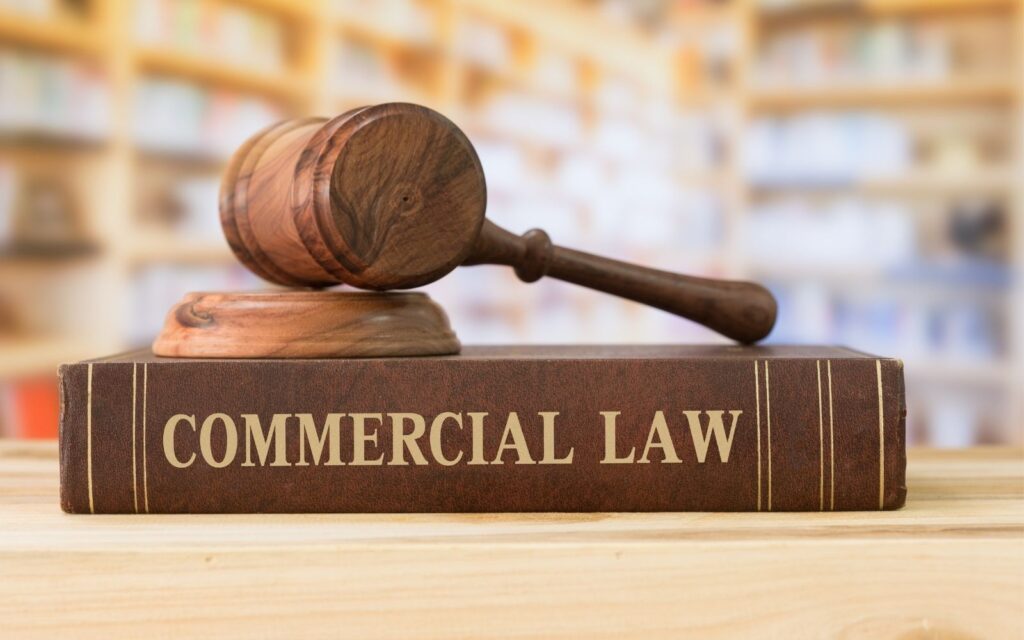Business law, sometimes referred to as mercantile law or commercial law, is a body of rules and laws that control business organizations and other activities involving commercial affairs.
All laws that provide instructions on how to establish and operate a business legally are included in the field of commercial law. The laws and regulations that control how a company may be formed, how to launch and run it, how to operate it lawfully, and how to sell or shut it are all included in the field of commercial law.
Commercial law also covers the rules governing companies, contracts, commercial documents, intellectual property, secure transactions, income tax, and other interactions in addition to those that are directly relevant to business.
Business law is important.
Company law primarily aims to uphold order, create a set of commonly recognized norms, settle disputes, and defend rights and freedoms when it comes to business and its interactions with clients, regulators, and other enterprises.
A “body of legislation which controls commercial and business activity” is what is meant by the terms “commercial law,” “business law,” and “trade law.” To enable commercial activity to satisfy the needs of the business community is the goal of commercial law.
The legal system gives transactions, trade customs, and market pricing impact, which gives the process certainty. Simply put, commercial law promotes commerce and prevents fraud, two essential components of an efficient democracy. This draws in domestic and foreign enterprise, building a solid economy.

A complete collection of internationally accepted standards: Customers suffered much in the past since there was no appropriate legislation in place to protect them, their investments, or their interests. The bulk of company owners had established their own self-made standards to earn as much money as possible since there were no laws to maintain orders, obligations, and preserve rights, which caused consumers to suffer greatly. Since the advent of business law, companies from all over the globe are now required to adhere to standardized rules that protect both clients and companies.
Decreased likelihood of fraud: Company law helps business owners by making them aware of the numerous laws and regulations aimed at both people and other companies. Additionally, it benefits consumers by educating them about their legal rights against company owners so that they do not become victims of the business’s hardships and scams.
Business laws support preserving balance: Customers feel satisfied and secure as a result of business law’s existence. Without business law, each industry had its own regulations governing commercial transactions, making it difficult for sellers and consumers to come to an agreement. However, given that every nation abides by the same criteria, it is much simpler to come to an agreement between a seller and a buyer. Due to this, global commercial transactions are now simpler and more efficient.
Ethical behavior: The adoption of business legislation allows company leaders to make better judgments. They are also aware of when to consult an attorney. There is a need for ethical behavior in any organization. Many firms, nevertheless, defy such behavior out of a desire for higher earnings. Every company is required by business law to uphold ethical behavior in order to keep customers happy and provide a positive corporate image.
How does it impact our day-to-day activities?
Unbeknownst to the majority of people, law surrounds us constantly from birth to death.
Let’s act out a little situation from our everyday life (maybe not currently but thinking about the pre-covid days). The law of contracts governs the sale of the bed you bought and the service agreement you have with your water provider, which ensures that there is water in your pipes every time you turn on the tap. As you wake up early and take a shower (hopefully), these legal processes are taking place without your knowledge. Next, you decide to put on a pair of your brand-new, fashionable shoes. The sale of the shoes is governed by the law of contracts, which specifies a reasonable standard of quality and outlines a guarantee for faulty goods.
All of these behaviors take place covertly, and they only really emerge into the open when something goes wrong. Legal regulations, which have a broad relevance in the economic transactions we do often throughout the day, are enmeshed in our everyday lives.

Domains protected under commercial law
You are already aware of the broad scope of commercial law and how it may be applied to any area of the law that regulates businesses and people engaging in transactional operations.
The range of laws covered under the business umbrella is extensive, and the following are some examples:
Business regulation, copyright law, consumer protection, contract law, environmental law, and antitrust (competition law) are a few examples.
In order to prevent complication, civil codes, which represent the already applicable legislation, provide detailed practical guidelines and information. Commercial law, like other fields of law, overlaps with other practice areas as well, so you must keep this in mind.
What exactly do commercial attorneys perform?
Lawyers who practice in the field of commercial law often handle transactions or represent clients in court. Lawyers that specialize in transactional work have obligations to help transactions via advice and ensure agreements are legitimate under the law. Contract writing, amending contract terms, and analyzing agreements for flaws that might lead to problems will be the main daily responsibilities. When a business or person has been harmed, the obligations of a litigator include pursuing redress via litigation.
Companies and people may both be sued, and depending on the result, there may be financial compensation or a cease-and-desist order issued. Simply put, commercial lawyers job is to defend their clients’ best interests by minimizing existing and future risks while ensuring that business is done in accordance with the rules and laws of the area in which they operate.
Why is it important to understand commercial law?
Many firms and people now work in what might be described as litigious times, meaning that agreements cannot only be made on the basis of a handshake or verbal agreement. By compensating impacted parties, protecting shareholder rights, and providing a framework for company creation, commercial law is essential to firms in allowing best practices.
Therefore, commercial law protects companies, but why should I care? We are all impacted by the core business law topic of consumer protection. Statistics show that UK consumers spend an average of £90 billion on shopping each month. With so many transactions, it is inevitable that disagreements will occur. In these cases, understanding of commercial law is not only useful, but also advantageous for individuals looking for remedies.
Being unaware of your rights and duties under business law might prove to be an expensive endeavor given how many commercial transactions we engage in every day.
More to read: IMPORTANCE OF CONVEYANCING IN THE PURCHASE OF PROPERTY










